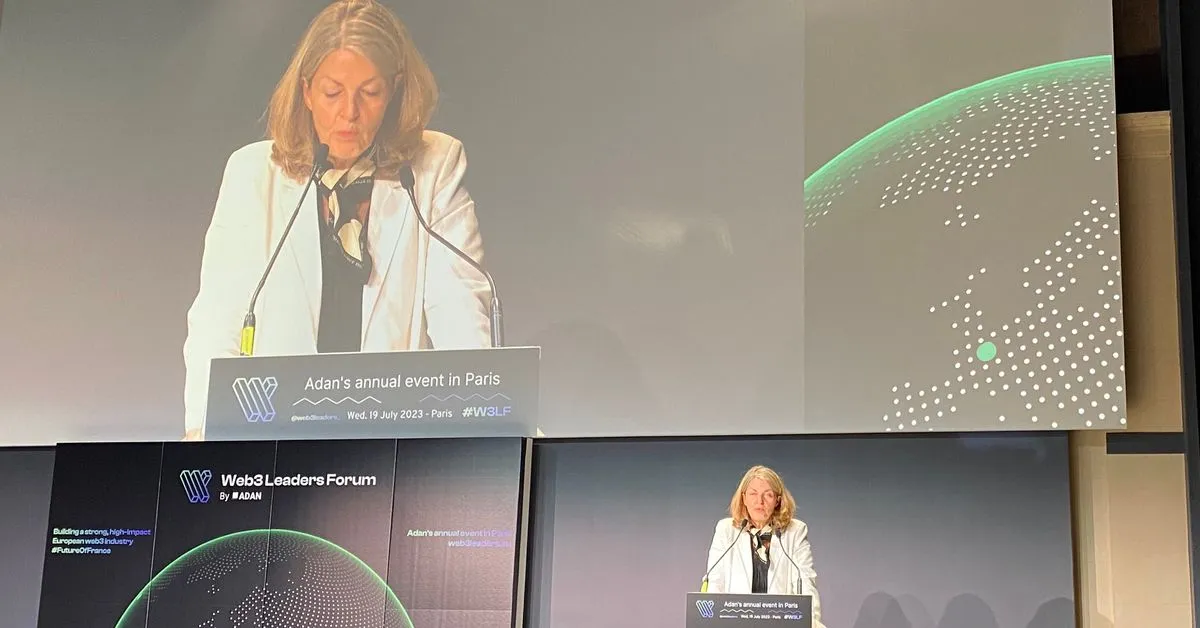France is boasting of the regulatory certainty it can offer, as U.S. enforcers wage a fierce – if not entirely successful – war on crypto. With a crypto registration regime in effect for years, new EU laws known as MiCA set to take effect in 2024, and lawmakers discussing a regime for gaming involving non-fungible tokens (NFTs), officials are bullish about the country’s preparedness for Web3. Marie-Anne Barbat-Layani, chair of France’s Financial Markets Authority (AMF), said that MiCA “will allow this sector to go to the next gear in terms of regulatory requirements” and that the AMF is “resolutely open to innovation.”
Barbat-Layani contrasted France’s situation with that across the Atlantic, noting that the U.S. SEC has “launched litigation strategies – strategies of which the successes aren’t totally clear – but which seek to treat crypto as a traditional financial instrument.” Last week, a ruling found that Ripple’s XRP token doesn’t necessarily fall under the current, century-old securities laws.
France has positioned itself as a crypto hub, and companies such as Binance have registered under its existing crypto law known as PACTE. On Tuesday, the AMF awarded its first ever crypto license to Forge, the financial-technology arm of the bank Societe Generale. Eric Larcheveque, Ledger’s former chief executive officer, noted that “it’s a French innovation, a technology really mastered in France… but not at all in the U.S.”
Now, France is hoping to build on its regulatory success by legislating for a new regime for Web3-style games involving monetizable digital objects. Isabelle Falque Pierrotin, chair of France’s National Gambling Authority (ANJ), said that her preference was for legislation to merely set high-level objectives, such as protecting children, allowing her to negotiate details with the sector.
